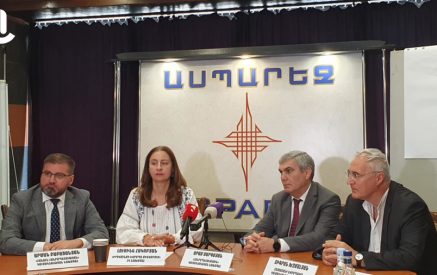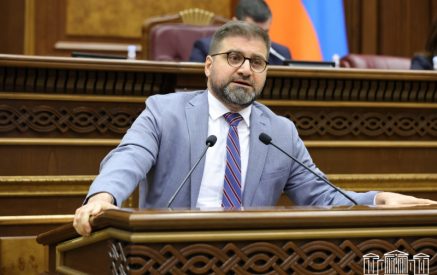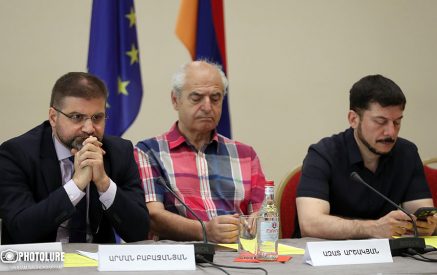Almost all opposition parties claim in the election campaign that the people are terrified. Yesterday that assessment was reiterated by Aram Sargsyan, the Democratic Party of Armenia (DPA) leader, explaining why the public opinion polls should not be trusted. If the matter is sociology itself, high-ranking companies ask “checking questions” during polls, in order to check the honesty of respondents.
Certainly, one may doubt the quality of Gallup or the All-Russian Center for the Study of Public Opinion (VTsIOM), one may assume that these two sociological companies are bribed by the Armenian government. However, it seems to me that it is not very reasonable to put forward their data as a proof for the “atmosphere of fear.”
Is there an atmosphere of fear in Armenia? In order to answer that question, one should decide whether there is really an autocratic regime in our country, as oppositionists sometimes claim? If yes, we live under the conditions of such a regime as is in North Korea or Turkmenistan, then, certainly, our people are also frightened and terrified and there is no institute of elections at all. Citizens have no opportunity – either real or virtual – to express their opinion and in this case, it is meaningless to conduct a public opinion poll.
However, Armenia, in my perception, is not a tyranny, but is a state with authoritarian and corrupted regime. It is more like some Latin American or CIS countries. Moreover, since mid-2011(after releasing prisoners of conscience and adopting a policy of not impeding the freedom of assembly), Armenia has been showing signs of soft authoritarianism.
Read also
Under these conditions it is hard to imagine how people are terrified, frightened and threatened. If a village elder enters my or my neighbors’ houses and urges to vote for one of the ruling parties, what leverage can he use to frighten us? I read on Facebook and other websites very opposition ideas, which are expressed by college professors or functionaries working in state institutions. All of them appear with their names. If they were afraid to lose their jobs, they wouldn’t express themselves that way.
Sometimes they say that the majority of our citizens don’t trust the secret ballot. As if there are many people who believe that there is a powerful, invisible force in the voting booth that will record how they have voted. It seems to me that there are no such people in Armenia. If, however, there are a considerable number of people in our country who believe in those fairy tales, then one shouldn’t conduct elections and talk about democracy and legitimacy in our country.
ARAM ABRAHAMYAN






















































